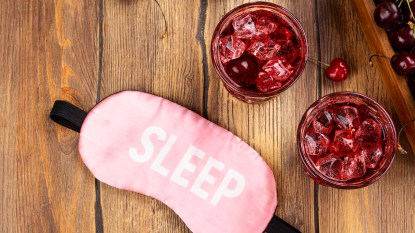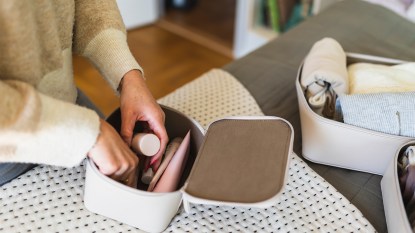3 Easy Ways to Ward Off Diabetes and Avoid COVID-19 Complications

Keeping blood sugar steady is especially important right now, because it reduces the risk of type 2 diabetes — a condition that’s been linked to COVID-19 complications
You’ve heard how important it is to lower your risk of developing type 2 diabetes since it makes you more vulnerable to stroke, heart disease and other conditions. Now doctors are warning that COVID-19 makes it more crucial than ever, because people with type 2 diabetes and those with poor blood-sugar control have a 20 percent greater risk of developing severe complications from the virus.
The reason blood sugar is connected to worse outcomes: First, high blood sugar weakens the body’s assault on viruses, explains Francesco S. Celi, MD, chair of the Division of Endocrinology, Diabetes and Metabolism at Virginia Commonwealth University. Second: “The high doses of steroids doctors use to treat COVID-19 cause the body to produce more blood sugar,” he says. This makes it even harder for the body to fend off viruses. The good news? Researchers have discovered simple tweaks that keep blood sugar and insulin levels in check to dial back your risk.
Open the Windows
Something as easy as opening the windows and letting the crisp fall air cool your home improves blood-sugar balance. How? “Cold exposure activates brown fat tissue,” Dr. Celi explains. This “good fat” burns off sugar in the blood to keep you warm — and that burn-off keeps blood sugar from spiking.
Results from one recent study out of the Netherlands: People with diabetes who were exposed to 60 degrees F temperatures for 6 hours a day experienced a 43 percent improvement in blood sugar. Other studies have shown a benefit when the room was as warm as 67 degrees F. Bonus: Dr. Celi says even a few hours of cool air also fires up metabolism.
Dim the Lights at Night
Turning down the lights 3 hours before bedtime can help steady blood sugar and insulin, report scientists at Northwestern University. In their recent study, adults following this easy advice burned blood sugar 30 percent more effectively than those exposed to bright lights before bed — and the effects took hold after just one night! “Bright light has powerful effects on the circadian clock and can negatively affect the body’s ability to utilize blood sugar,” explains study co-author Phyllis Zee, MD, a sleep specialist at Northwestern University.
Also smart: Sleep in total darkness. “Light at night suppresses melatonin, which affects the function of cells that secrete insulin,” Dr. Zee adds. Plus, you’ll enjoy deeper sleep, say investigators at the Mayo Clinic. They found that taking steps to increase melatonin levels reduced nighttime awakenings by more than 90%.
Fill Your Water Bottle
If you poured yourself a glass of water today, you lowered your diabetes risk! So say researchers in the journal Diabetes Care. In their study, people who sipped at least 17 oz. daily were 28 percent less likely to develop high blood sugar than those who drank less.
One likely reason: Not drinking enough water leads to reduced insulin production and higher blood sugar, notes Dana Cohen, MD, author of Quench (Buy on Amazon, $21.49). She recommends muddling a slice of cucumber in each glass of water. “The fiber helps the body absorb the water so the body can hold on to the hydration.” In one study, cucumbers lowered blood-sugar levels by 67 percent.
This story originally appeared in our print magazine.













